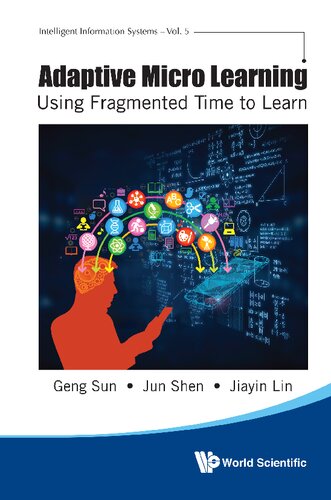

Most ebook files are in PDF format, so you can easily read them using various software such as Foxit Reader or directly on the Google Chrome browser.
Some ebook files are released by publishers in other formats such as .awz, .mobi, .epub, .fb2, etc. You may need to install specific software to read these formats on mobile/PC, such as Calibre.
Please read the tutorial at this link: https://ebookbell.com/faq
We offer FREE conversion to the popular formats you request; however, this may take some time. Therefore, right after payment, please email us, and we will try to provide the service as quickly as possible.
For some exceptional file formats or broken links (if any), please refrain from opening any disputes. Instead, email us first, and we will try to assist within a maximum of 6 hours.
EbookBell Team

4.4
72 reviewsThis compendium introduces an artificial intelligence-supported solution to realize adaptive micro learning over open education resource (OER). The advantages of cloud computing and big data are leveraged to promote the categorization and customization of OERs micro learning context. For a micro-learning service, OERs are tailored into fragmented pieces to be consumed within shorter time frames.
Firstly, the current status of mobile-learning, micro-learning, and OERs are described. Then, the significances and challenges of Micro Learning as a Service (MLaaS) are discussed. A framework of a service-oriented system is provided, which adopts both online and offline computation domain to work in conjunction to improve the performance of learning resource adaptation.
In addition, a comprehensive learner model and a knowledge base is prepared to semantically profile the learners and learning resource. The novel delivery and access mode of OERs suffers from the cold start problem because of the shortage of already-known learner information versus the continuously released new micro OERs. This unique volume provides an excellent feasible algorithmic solution to overcome the cold start problem.